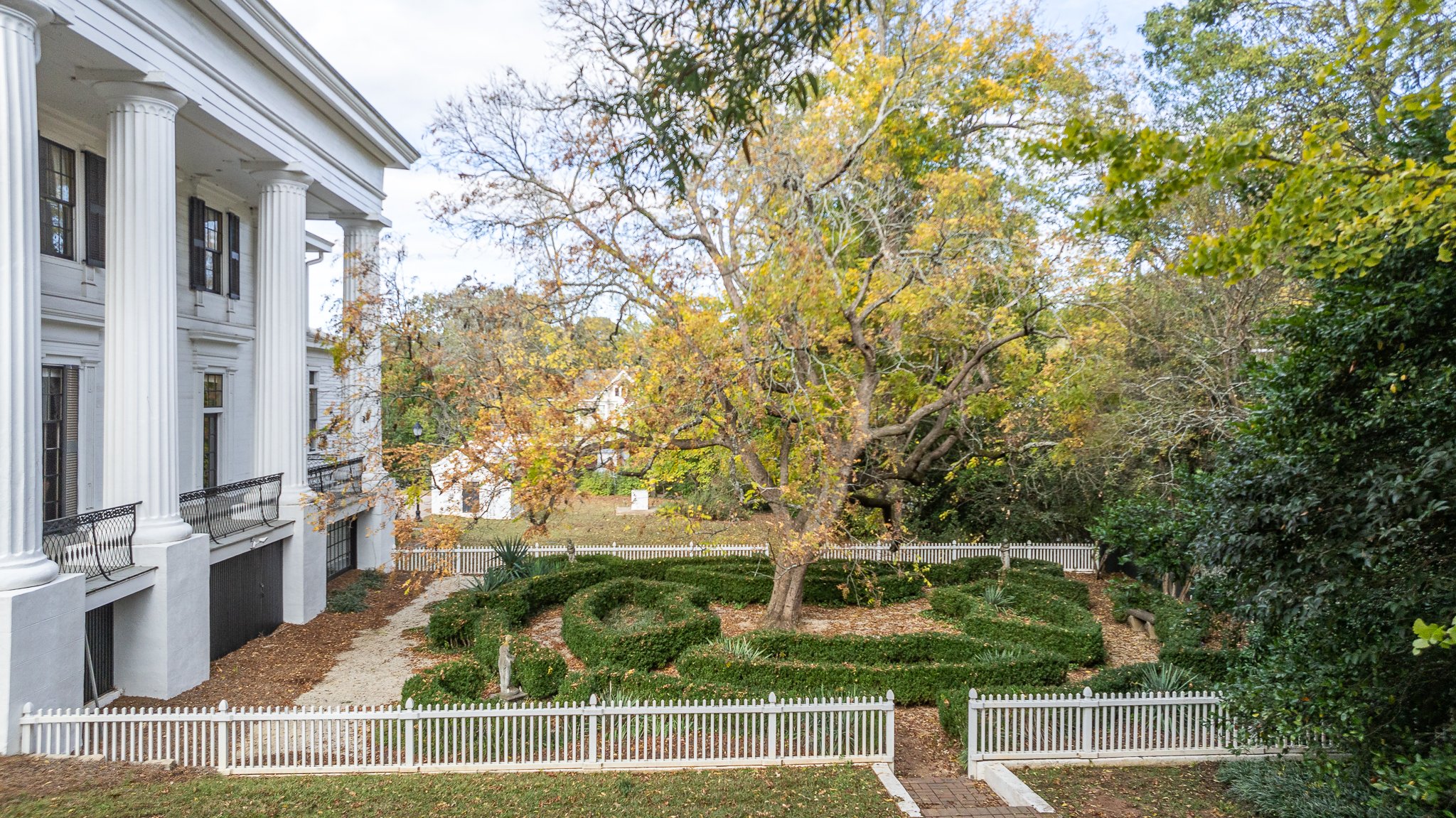









Taylor-Grady House
Historical Research and Compilation by Meghan Mundy
Photos by Matt Brewster, Marigold Solutions
Robert Taylor, born in Ireland in 1787, immigrated with his family to Savannah, Georgia, in the 1790s. As an adult, Taylor became a prosperous cotton merchant and plantation owner, and his family frequently spent summers at their plantation in Morgan County. In the early 1840s, around 1844, he constructed this grand Greek Revival mansion in Athens as a summer residence. The design features thirteen columns, symbolizing the original thirteen colonies.
When his three sons enrolled at the University of Georgia, the Taylor family made Athens their permanent home. Taylor was appointed Brigadier General in the Georgia Militia, and although he resigned his commission in 1845, he continued to be addressed as "General" Taylor. He passed away in 1859, having accumulated more than 17,000 acres of land across Georgia.
Henry W. Grady was born in Athens in 1850. In 1863, his father, Major William S. Grady, purchased this house from the Taylor family while on furlough from the Confederate Army. As renters were still occupying the home, Major Grady returned to the war without relocating his family and was later killed at the Battle of Petersburg in Virginia. Henry Grady lived here from 1865, while attending the University of Georgia, until his graduation in 1868. He once described the house as "an old southern home, with its lofty pillars, and its white pigeons fluttering down through the golden air."
Henry Grady went on to become the managing editor of the Atlanta Constitution and earned a reputation as a powerful orator. In December 1886, he delivered his famous "New South" speech at the New England Club in New York City, whose members included prominent financiers like J.P. Morgan and Charles Tiffany. He began his address with a quote from fellow Georgian, Benjamin H. Hill: "There was a South of slavery and secession; that South is dead... a South of union and freedom; that South, thank God, is living, breathing, growing every hour." The speech was met with rousing applause, and Grady quickly became a national figure. Through his speeches and writings, he advocated for reconciliation and economic progress in the post-Reconstruction South. Henry Grady died of pneumonia at the age of 39 in Atlanta.
After changing ownership several times, the house became part of an estate in the 1950s and 60s, and was left vacant for thirteen years. During this period, the property fell into disrepair. However, in 1966, the city of Athens purchased the house, and the Athens Junior Assembly (now the Junior League of Athens) organized its first restoration. In 2004, the house closed again for a year-long, $1.7 million renovation funded by a special local sales tax program. The renovation aimed to restore the house to its historical accuracy, particularly reflecting the period when it was home to Henry Grady. As Grady’s only surviving residence, the house was designated a National Historic Landmark in 1976.
The restoration of the house to historical accuracy included extensive color studies of the interior walls and landscaping adjustments to recreate the wooded front yard that once surrounded the property. The renovation also incorporated essential modern updates, including a fire sprinkler system, new electrical wiring, and an upgraded climate control system.
The Junior League of Athens managed the property until 2022. Today, while still owned by Athens-Clarke County, the house and grounds are operated by the Taylor-Grady House National Historic Landmark Foundation, a non-profit 501(c)(3) organization. The Foundation works to preserve this architectural treasure and its important collections, ensuring it remains a vibrant historic space for the Athens community.
Image Source: The Red & Black, September 20, 1988, Georgia Historic Newspaper Database.
Image Source: The Red & Black, September 23, 2003, Georgia Historic Newspaper Database


